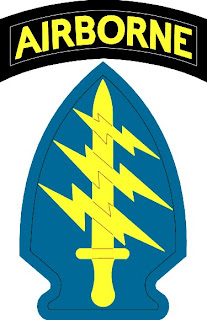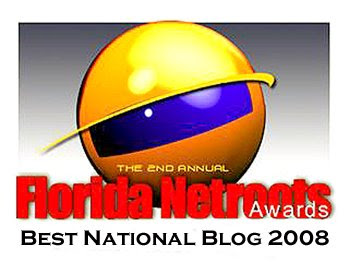Asymmetrical Awards
 _____________________
_____________________The military loves buzzwords like asymmetrical warfare, but often fails to examine the words beyond their simplest, most useful meaning.
If our wars are asymmetrical, then are our soldier's heroism and awards also become asymmetrical? Can asymmetrical warfare produce symmetrical valor and asymmetrical awards for this valor (i.e., medals)? Unlike Napoleon, the U.S. Army does not travel on its stomach but rather upon its awards and decorations. While we do not win many wars lately, but the awards sure do look good.
If our wars are asymmetrical, then are our soldier's heroism and awards also become asymmetrical? Can asymmetrical warfare produce symmetrical valor and asymmetrical awards for this valor (i.e., medals)? Unlike Napoleon, the U.S. Army does not travel on its stomach but rather upon its awards and decorations. While we do not win many wars lately, but the awards sure do look good.
The Phony War on Terror (PWOT ©) is so insubstantial, unquantifiable and insignificant that the suffering and valor of the fights -- though real -- seem diminutive and illusory compared to symmetrical war standards. While our soldiers are exemplary, the so-called wars and battles are devoid of any meaning beyond the violence.
The awarding of medals for valor rests upon the assumption that the violence has a legitimate purpose. Medals try to reassure us that combat is not the same as a drive-by shooting or a barroom brawl. Our medals add dignity to an undignified endeavor, but one which it is presumably undertaken in order to reestablish some more positive order to society. All combat soldiers understand the undignified part of the equation; the only possible salvation is the idea that there is a larger purpose to the brutality.
A brief trip through past award winners gives an idea of what is being suggested:
Lew Millet led a company-sized bayonet assault against a dug-in and fortified Chinese main line of resistance. Contrast this against Staff Sergeant Robert Miller's death struggle; the substance is lacking (with no disrespect to Miller.)
Contrast Lt. Murray's Medal of Honor (MOH) to Gene Ashley's at the Battle of Lang Vei, or Franklin Miller's in Studies and Observations Group (SOG). Think of Crandall's MOH at LZ X-Ray, or Commando Kelley at Anzio. Think of Sergeant York. Think of the magnitude of these past battles.
Assuredly Lt. Murray met the standard for the award, but the scenario lacked military logic. One must ask: Why are we expending valor for no recognizable purpose?
Compare recent MOH winner SSG Salvatore Giunta to Captain Donlon's award, the first of the U.S. Vietnam War. Think of SSG Basilone on Guadalcanal. If Basilone had caved, the perimeter of a Regiment would have been fractured. One man prevented the collapse of a front, while SSG Guinta saved two men. Again, SSG Giunta acted with courage and valor, but it is a flavorless meal leaving no sense of fulfillment.
Perhaps that is why SSG Giunta was angry upon being interviewed after receiving his award. Perhaps he understood the essential insignificance of the losses his unit incurred, for it is there where he put his emphasis -- on the loss, rather than the gain.
The award is real, but the circumstances are like wisps of pipe smoke in nature.
{SFC Smith's MOH is not mentioned because this was a force-on-force battle on a conventional battlefield, and was not asymmetrical warfare.}
The actions of all of the Medals of Honor from Iraq and Afghanistan pale to insignificance when viewed historically. This is not a criticism of our soldiers but rather of our political leadership which puts brave men in untenable circumstances. It should be noted: All of the awards in Vietnam, Iraq and Afghanistan did not add up (will not add up) to victory.
Valor is too precious to expend frivolously. It is apparent that our soldiers are now pawns and targets in incomprehensible and unjustifiable conflicts, and all the sound bytes and awards cannot justify the non-military complexion of the violence.
Labels: afghanistan, historical battles, medals of honor, SSG Giunta Medal of Honor, SSG MIller medal of honor, valor, violence











0 Comments:
Post a Comment
<< Home